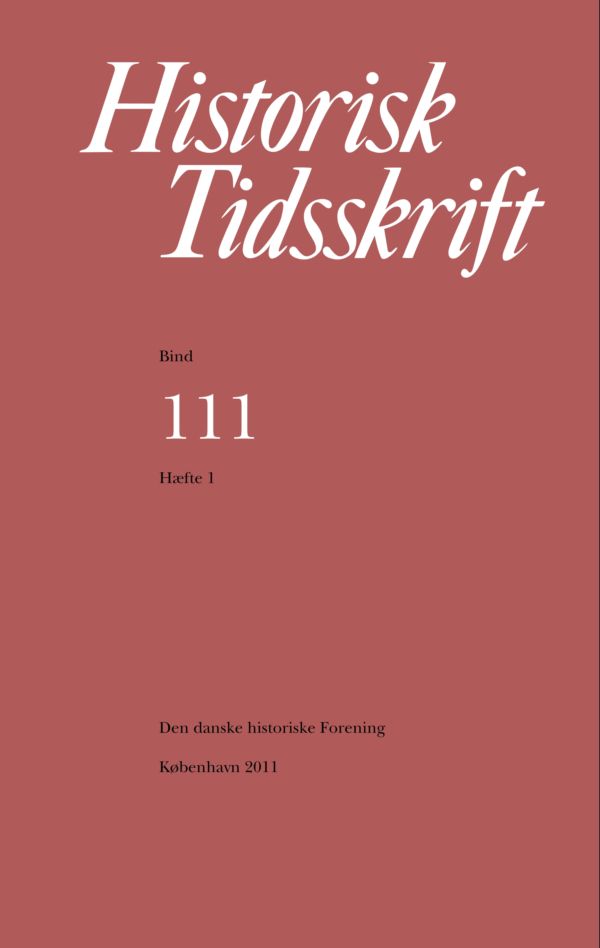Demokratibegrebets gennembrud i Danmark i 1848
Resumé
The Breakthrough of the Concept of Democracy in Denmark in 1848In 1848, the year of Revolution, the Danish public scene witnessed an extraordinary transformation of the idea of democracy. At the beginning of the year, the values attributed to the word were still predominantly negative, and it played only a minor role in contemporary political debates. However, over a few eventful months of Spring and Summer that year, democracy was transformed into a core concept with largely positive connotation. It occurred more frequently and its meaning as well as the contexts in which it appeared became more complex. Those changes in the semantics and pragmatics of ‘democracy’ were especially bound up with a more diversified use of the term in relation to the principle of universal male suffrage. Earlier in the decade only radicals with a marginal position in political life had proclaimed themselves democrats and supporters of universal male suffrage. In the spring of 1848, this opinion was endorsed by representatives of wider circles of artisans and members of the Society of ‘Friends of the Peasants’ [Bondevennerne]. At the same time, even other Liberals, rallying round the newspaper Fædrelandet, took a similar stance. Still, significant rhetorical re-description of the term accompanied the Liberal conversion to democracy. The novel idea was fitted into the customary ideological framework, endowing the ‘cultured’ upper classes with political hegemony while relegating the common people to a subaltern position. Further to the right, genuine Conservatives continued to raise their voice in opposition to democratic renewal, but even these attempts were shaped by the revolutionary context: Rather than staging a direct struggle against franchise and democracy, they sought an arrangement in which the elected assembly was counter-balanced by an Upper Chamber based on royal appointment and heredity. Finally, new dissident voices were heard from outside the political mainstream. From a basic viewpoint allegedly in favor of democracy, those voices criticized the other parties and their plans for a new constitution – a formal and legal construct which the dissidents held to be pseudo-democratic. The breakthrough for the concept of democracy in Denmark in 1848 reflected internal conditions peculiar to that country. At the same time, though, the process was an integral part of the European revolutionary surge of 1848-49 which pervasively changed the mental and institutional setup, facilitating transformative agency in the realm of politics. Above all, the revolutionary tide induced a significant widening of society’s legitimate space for public debate. Before 1848, legitimate public discourse had been the exclusive domain of the propertied and educated classes who – pleading their superior capabilities – had claimed the right to speak on behalf of the people as a whole. However, in the course of revolutionary events new social groups emerged as political subjects, asserting new modes of political speech, thought and activity. These groups included the poor and underprivileged in town and country, but also conservative landowners. Every one of these groups thus underwent a process of political subjectification, challenging the exclusion of precisely their group from the platform of public political debate. Thus, the concept of democracy may be viewed as the core element in a historical reconfiguration of the modern sphere of politics. The bourgeois public sphere was extended and the mode of addressing it changed remarkably. Social hegemony in the representation of ‘the people’ did persist, but in novel forms.Downloads
Publiceret
Citation/Eksport
Nummer
Sektion
Licens
Ophavsret til bidrag i Historisk Tidsskrift tilhører forfatterne og Den danske historiske Forening som udgiver af Historisk Tidsskrift. For illustrationer gælder den ophavsret, som står anført i billedteksten. Ophavsretslovens almindelige bestemmelser gælder, hvilket vil sige, at ophavsretten gælder i 70 år efter forfatterens død. Bidrag i Historisk Tidsskrift må derfor, med forbehold for en ”moving wall” på tre år, frit downloades, læses, gemmes, anvendes og citeres (med kildeangivelse) i privat og videnskabelig sammenhæng, men de må ikke helt eller delvis genudgives af tredjepart, heller ikke i redigeret form, uden tilladelse fra forfatterne og Den danske historiske Forening. Henvendelse skal i så fald rettes til Historisk Tidsskrifts redaktion på histtid@hum.ku.dk.





